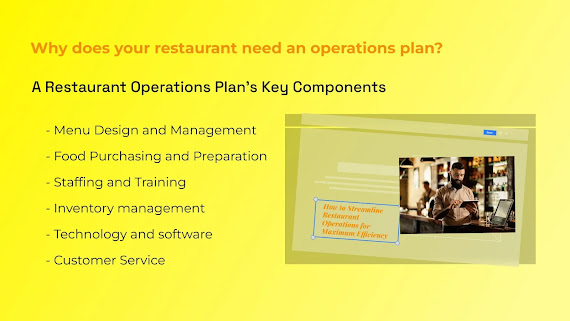Expert Advice: 5 Essential Tips for Restaurant Leasing
Leasing a restaurant is a significant commitment, whether you're a budding restaurateur or an experienced entrepreneur exploring new locations. The decisions you make during this process can impact your business for years. Therefore, before signing anything, it's crucial to consider your options carefully. Here are some valuable tips to streamline your restaurant leasing journey:
Understanding Lease Agreements
A commercial lease agreement is a legal contract between landlords and tenants. To grasp your rights and responsibilities as a tenant, consulting with a lawyer is essential. While each commercial lease is unique to accommodate the tenant-landlord relationship, certain aspects should be explicitly detailed in your agreement.
Advantages and Disadvantages of Restaurant Space
Choosing between leasing and buying commercial property is a rare occurrence in the restaurant industry. Approximately 95% of commercial properties are available for lease, making it unlikely to find a property for sale.
Advantages:
- Ownership: With a purchased property, you invest in your own space and build equity.
- Property Value: Property values tend to appreciate over time, potentially yielding significant returns.
- Independence: You won't have to deal with landlords or property managers.
Disadvantages:
- Location Limitations: Popular, high-traffic commercial properties are rarely available for sale.
- Maintenance Costs: As an owner, you're responsible for property maintenance and repairs.
- High Startup Costs: Purchasing property requires substantial upfront capital.
5 Tips for Successful Restaurant Leasing
Create a Budget: Set a realistic budget to assess potential spaces effectively. Understanding the costs, including rent, utilities, insurance, property taxes, and maintenance, is crucial. Calculate these expenses based on your projected revenue, typically budgeting 5-10% of revenue for fixed costs. Ensure you have a financial cushion for unexpected situations.
Research the Neighborhood: Dive deep into neighborhood research, considering current foot traffic, demographics, competition, and emerging trends. Anticipate how the area may evolve during your lease term. Factors like competition, business turnover, foot traffic, atmosphere, and accessibility are critical.
Measure Your Space: Take accurate measurements of the restaurant space, ensuring you're not paying for more than you need. Consider the space requirements for the kitchen, bar, back-of-house, and dining areas. Allocate budget accordingly, as service and back-of-house operations usually account for 40% of expenses.
Assess the Space's Potential: Determine your objectives for the restaurant lease. Decide whether you want to establish your brand or generate immediate revenue.
Negotiate Your Lease: Prepare for negotiations by understanding your finances and limits. Don't hesitate to negotiate terms in your favor. Be willing to walk away from unsuitable deals. Ask questions, speak to other tenants, and never accept the initial offer. Take your time making decisions.
5 Points to Consider Before Leasing
Location: The success of your restaurant heavily relies on its location. You can either lease a new location or purchase an existing business with a transferable lease. Ensure that local authorities permit restaurant use.
Lease Term: Carefully assess the length of your lease term. Longer leases may limit your flexibility but provide stability. Negotiating an option for an additional term can offer security.
Rent: Understand how rent is calculated and negotiate to include expenses or rent incentives. Research local rental rates to ensure a fair deal.
Maintenance: Be aware of maintenance responsibilities, including equipment upkeep and potential repairs.
Renovation: Some leases require periodic renovations. Negotiate the extent of this obligation to manage costs.
5 Questions to Ask During Negotiations
Renewal Options: Consider the cost of not renewing your lease, including business disruption and moving expenses.
Renovation and Property Improvement Restrictions: Understand limitations on property modifications, returning the space to its original state, and ownership of furnishings.
Parking Options: Ensure adequate parking for customers and inquire about guaranteed parking for tenants and staff.
Signage Rights: Know the restrictions and permissions for external and interior signage.
Landlord's Responsibilities: Clarify who is responsible for cleaning, repairs, property upkeep, and operating expenses.
With these insights, you're well-equipped to navigate restaurant leasing negotiations, secure favorable terms, and make informed decisions for your business's success.
Reach Restaurantify for more such interesting content.




Comments
Post a Comment